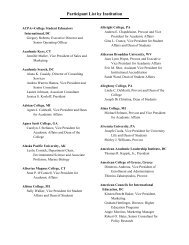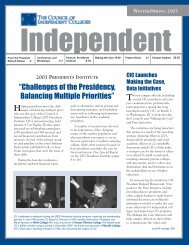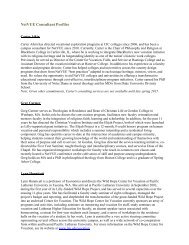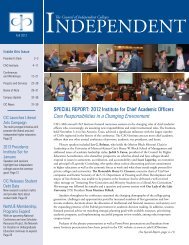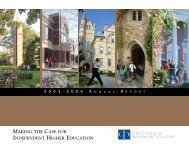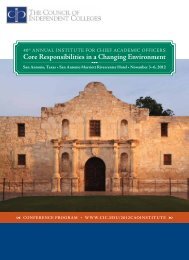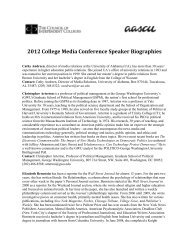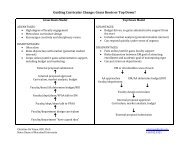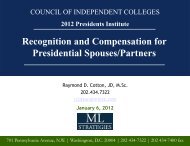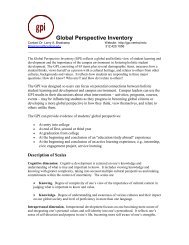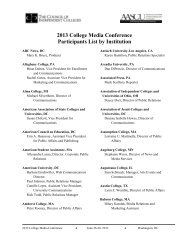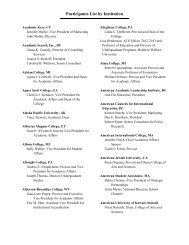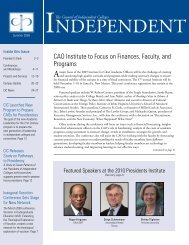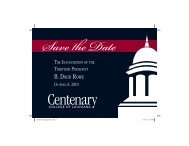Meeting the Challenge: - The Council of Independent Colleges
Meeting the Challenge: - The Council of Independent Colleges
Meeting the Challenge: - The Council of Independent Colleges
Create successful ePaper yourself
Turn your PDF publications into a flip-book with our unique Google optimized e-Paper software.
John R. <strong>The</strong>lin<br />
combined with a declining rate <strong>of</strong> financial support. To<br />
compound <strong>the</strong> problem, demographers pointed out that<br />
<strong>the</strong> number <strong>of</strong> high school graduates was declining—and<br />
graduating seniors were showing less inclination to go to<br />
college than <strong>the</strong>ir predecessors.<br />
Just as <strong>the</strong>y had done in <strong>the</strong> wake <strong>of</strong> World War<br />
II, many colleges and universities initially responded by<br />
adopting severe measures to reduce operating expenses and<br />
keep tuition from soaring. Thrift, in <strong>the</strong> various forms <strong>of</strong><br />
energy conservation, deferred plant maintenance, hiring<br />
freezes, and salary reductions, seemed to work from 1975 to<br />
1979, as increases in <strong>the</strong> price <strong>of</strong> attending college remained<br />
below <strong>the</strong> nation’s generic consumer price index (CPI).<br />
<strong>The</strong>se measures eventually proved insufficient and sometimes<br />
counterproductive. <strong>The</strong> failure to maintain campus buildings<br />
and grounds, for example, could not continue indefinitely<br />
without leading to problems <strong>of</strong> health, security, and<br />
obsolescence—and thus declining appeal to prospective<br />
students and <strong>the</strong>ir parents.<br />
In place <strong>of</strong> piecemeal measures, by 1980 <strong>the</strong><br />
presidents and o<strong>the</strong>r administrators at independent colleges<br />
were reading—and heeding—books about strategic planning<br />
and o<strong>the</strong>r approaches to management that encouraged<br />
rethinking how colleges work. <strong>The</strong> influential books included<br />
Lewis Mayhew’s Surviving <strong>the</strong> Eighties (1980) and George<br />
Lesley University<br />
in Massachusetts<br />
extended its<br />
curriculum to<br />
include a variety <strong>of</strong><br />
innovative, flexible<br />
master’s programs<br />
that supplemented<br />
its traditional<br />
bachelor’s degree<br />
<strong>of</strong>ferings in<br />
education and<br />
related fields—with<br />
favorable results<br />
both for <strong>the</strong><br />
institution and <strong>the</strong><br />
community.<br />
27



